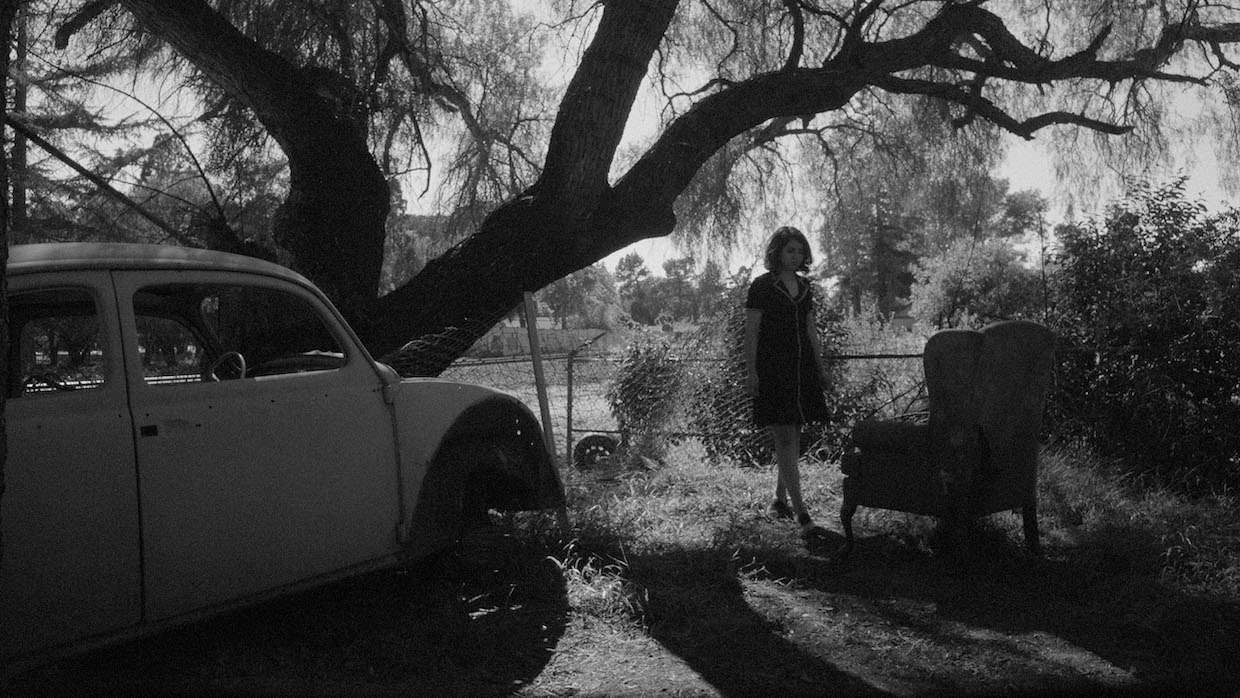 Back to selection
Back to selection
“The Process Is Similar to the One I Go Through When I Direct”: Editor Babak Jalali on Fremont
 Anaita Wali Zada in Fremont (Photo by Laura Valladao)
Anaita Wali Zada in Fremont (Photo by Laura Valladao) In Fremont, the latest film from Babak Jalali, Afghan refugee and former translator for the U.S. government Donya (Anaita Wali Zada) suffers from intense bouts of insomnia. Living in the Bay Area and working at a fortune cookie factory, she channels her loneliness and frustration into an odd outlet. She decides to insert a personalized fortune into a random cookie, curious and unsure of whose hands it will land in.
Fremont director and co-writer Babak Jalali discusses the process of editing the film, a role he undertook due to a strong “gut feeling.”
See all responses to our annual Sundance editor interviews here.
Filmmaker: How and why did you wind up being the editor of your film? What were the factors and attributes that led to your being hired for this job?
Jalali: I am also the co-writer and director of the film, so I have been involved in the project from the beginning. I edited my first feature film but worked with an editor on my second and third feature films. On Fremont, I knew from the beginning that I wanted to edit it myself. Purely a gut feeling. And I am thankful that the producers were supportive of this.
Filmmaker: In terms of advancing your film from its earliest assembly to your final cut, what were goals as an editor? What elements of the film did you want to enhance, or preserve, or tease out or totally reshape?
Jalali: I didn’t start out with any specific goals in mind. I merely wanted to make sure the film could stand on its own legs and not be swayed by how other films have been edited. The process is similar to the one I go through when I direct. I don’t watch any other films before or during. I was conscious of the fact that having also directed the film, I had to be careful not to be too overprotective of the material that had been shot. Being in this position, the risk of self-indulgence is high.
Filmmaker: How did you achieve these goals? What types of editing techniques, or processes, or feedback screenings allowed this work to occur?
Jalali: As opposed to editing chronologically, I first edited a few specific scenes. For me, this is important to keep the motivation high and be constantly excited about the process. I am indebted to my producers Rachael Fung and Sudnya Shroff for the invaluable time they gave to me as I edited the film. They were always available to watch scenes or cuts and give feedback. They were honest in their opinions but really allowed me to stay true to what I was trying to achieve.
Filmmaker: As an editor, how did you come up in the business, and what influences have affected your work?
Jalali: This is the fourth feature film I have edited, two of which have been films I have directed. The other two (Simon Killer by Antonio Campos and Amanda by Carolina Cavalli) are films directed by friends. So for me, every time I have edited, it has been on projects where I have been aware of everything from the script stage until I’ve sat down behind the computer to edit. There’s never been a time where I have been brought on once everything has been shot and I have not known about the project beforehand.
Filmmaker: What editing system did you use, and why?
Jalali: I used Adobe Premiere Pro. It’s a system I am used to. I learnt to edit on a Steenbeck, cutting on film. And once I started to edit on a computer, I used Final Cut Pro. Premiere Pro’s ease of use and accessibility reminds me a lot of Final Cut Pro (prior to Final Cut Pro X).
Filmmaker: What was the most difficult scene to cut and why? And how did you do it?
Jalali: The most difficult scenes to cut in Fremont were the ones between Donya and Dr. Anthony in the psychiatrist’s office. We shot these scenes in a very static way and there is a lot of dialogue exchange and humor involved so the question of pacing is crucial. I felt every frame became important (regardless of if that frame was cut or remained in the final edit.)
Filmmaker: Finally, now that the process is over, what new meanings has the film taken on for you? What did you discover in the footage that you might not have seen initially, and how does your final understanding of the film differ from the understanding that you began with?
Jalali: When I started editing the film, I imagined its final duration would be quite a bit longer than what it ended up being. When I write, I often think less is more. This time, I learnt that when you edit, sometimes less is also more.
